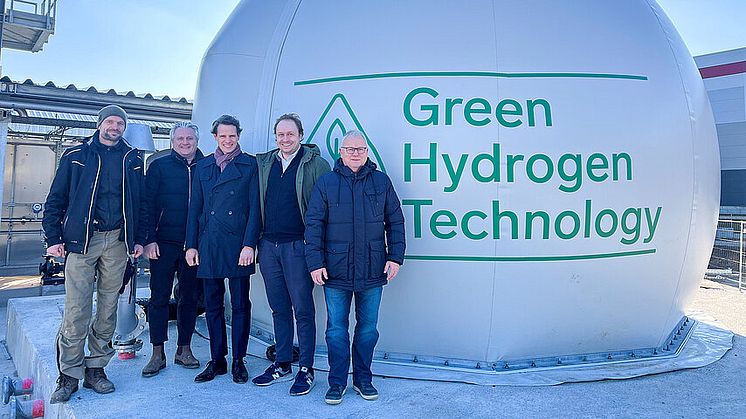
News -
Green Hydrogen Technology and Westfalen Group Launch Cooperation for Hydrogen from Residual Materials
Working together for more climate protection: if you want to use environmentally friendly hydrogen, you still pay a high price Green Hydrogen Technology GmbH (GHT) from Augsburg and the Westfalen Group from Münster now want to change this as part of a strategic partnership - with the help of hydrogen from waste materials. The two companies have now agreed to cooperate to this end. The hydrogen produced in GHT's waste-to-hydrogen plants is even CO2-negative thanks to integrated CO2 liquefaction, as emissions caused by alternative waste incineration are directly avoided.
Westfalen plans to supply customers in the mobility and industrial sectors with the energy source obtained from GHT plants. The company has its own fleet of hydrogen trailers for deliveries. Even though GHT's waste-to-hydrogen plants can be built anywhere in the future, the new partnership will initially focus on supplying the southern German region. The first commercial GHT plant for the production of hydrogen from waste materials is currently being built at a medium-sized waste disposal company in Göppingen, Baden-Württemberg.
In addition to the environmental aspect, the most important criterion for the production of hydrogen by recycling residual materials is the affordability of the product. “The hydrogen produced decentrally in the plants is part of a cycle and is priced significantly lower than hydrogen from conventional electrolysis using renewable electricity. This will boost demand, give the producer security of supply and our customers security of supply,” says Dr. Nicolas Dohn, Head of Hydrogen at Westfalen. This is another reason why both companies see this collaboration as a forward-looking partnership.
“GHT and Westfalen share the vision of a green and circular society and economy. Together we will achieve a lot. Our customers and partners will benefit from the security of demand for the hydrogen and liquid CO2 produced by a strong partner like the Westfalen Group,” said Robert Nave, CEO of GHT, at the presentation of the partnership in front of the company's first waste-to-hydrogen plant in Germany. In addition to cost-effective production, the advantage of the plants is that they can be used decentrally and are relatively easy to set up using the plug-and-play method.
Building on the partnership, Westfalen and GHT would like to potentially extend this hydrogen supply model to other partners. The aim is to connect all participants in the value chain in order to ensure the greatest possible efficiency in the production, transportation and distribution of environmentally friendly hydrogen. “By joining forces, we are contributing to the development of the hydrogen market and playing our part in accelerating the energy transition in Germany,” Dohn is convinced.

